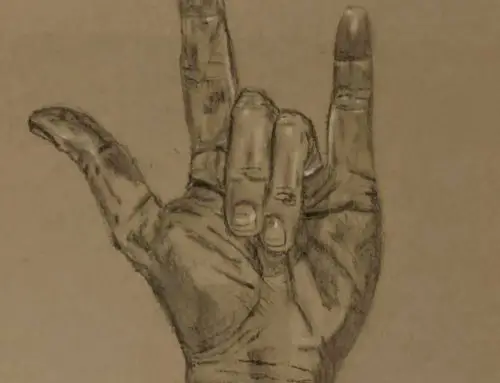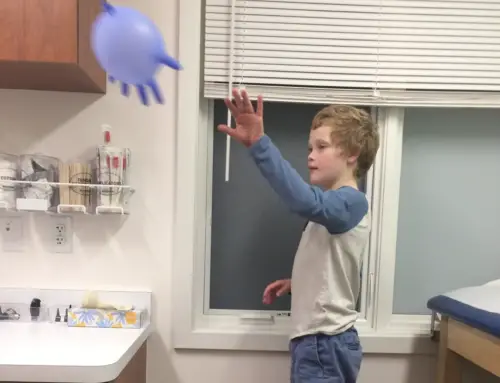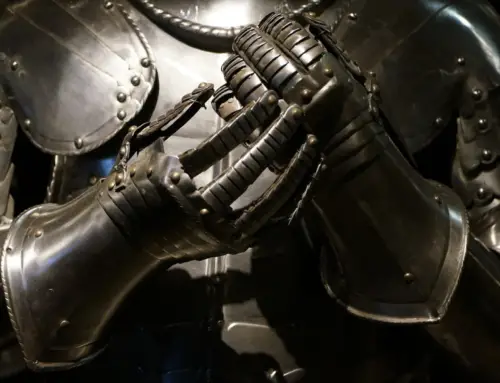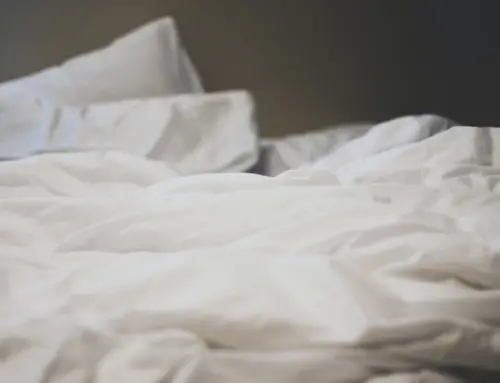Falling asleep at the end of the day can seem like an illusive idea for our children with ADHD. As a baby and toddler, Grasshopper never really had any difficulties falling asleep. However, the last couple of years going to sleep was becoming increasingly difficult for him. The problem became much worse after deciding to use medication to treat his ADHD.
Overall, using medication to treat his ADHD has had amazingly positive results, but that’s another topic for another post. The problem we were encountering was that the medication wears off at the end of the day. This means at bedtime, his brain starts to feel like it’s playing ping pong again (this is how he describes how his ADHD feels). All of this means that when he should be winding down for bedtime, the opposite is happening and his brain is getting wound up again.

Being up until midnight (or later) was becoming a consistent problem. He was frustrated and in tears often, struggling to understand why going to sleep was such a problem for him.
We went through a period of trial and error to find what would help him sleep at night. We took suggestions from his doctor, occupational therapist, and of course lots of internet research. Here are our results.
Sleep Tricks That Didn’t Work
Here’s the tricky thing about parenting, no two children are a like. Even within our own families our children are completely different. That means what worked for someone else didn’t necessarily work for Grasshopper. It also means that what works for us might not work for you. For that reason, I’ll share what didn’t work for us. Hopefully you can find some success with these options.
- Essential Oils – I love them, but they didn’t do anything for helping Grasshopper calm down and sleep.
- Reading
- Journaling – His occupational therapist suggested he have a journal by his bed, when he couldn’t sleep he could write down what he was thinking about. The idea was get it on paper and out of his head.
- Night light
- Completely Dark
- Complete Silence
- Relaxing bath (before bedtime)
Sleep Tricks That Did Work
We tried all of the following things individually. By themselves, they didn’t help (even the melatonin). Through a lot of trial and error we came up with a combination that works. The trick that seems to have made a difference was a bedtime routine that involves all the different sensory aspects. Brace yourselves, this list goes against all of the wind down activities you think of in a bedtime routine.
- Melatonin – We give him this about 20-30 min before bedtime. I plan to try removing this from our regimen after sleep habits are better established. But the upside is that it’s a natural supplement to help the body fall asleep naturally.
- Exercise videos – I use exercise videos on you tube designed for kids. He’s doing a good cardio workout for about 15-20 minutes right before going to bed. Push ups are also involved in the work out to provide some “heavy” sensory input.
- Drink of water – I’m not sure this really helps him sleep but it means he can’t use the “I’m thirsty” excuse to get out of bed
- Coloring books – I’m not talking about character type coloring books that might get a child excited, but my “adult” coloring book has been really calming for him. We let him color in bed for about 15 minutes before he has to turn the lights off.
- Classical Music – Played quietly
- Weighted Blanket – This really helps his body relax and calm down.
Alas, the picture in our minds of cuddling up and reading bedtime stories to put our kids to sleep is more of a fairy tale. Like everything else, we need to be able to make adaptations and problem solve until we come up with a method that works for our kids with ADHD. I hope you’re able to find some suggestions here to help!








Thanks for this! I’ve read a lot of recommendations for helping children with ADHD sleep that haven’t helped us much, this is a good reminder that each solution will be different. We have an 8 and a 10 yr old both with ADHD and both struggling to sleep. Both like a nightlight at the moment, and melatonin (just 1mg) plus an audiobook usually get our 10 yr old to sleep before 11 which is an improvement. The 8 yr old we are still figuring out – an audiobook helps still his forward rolling and bed bouncing, but keeps his mind a bit too alert. White noise used to help (cat purring noise loop!) but not any more. I’d like to try your exercise tip!
Our public library offers free downloadable audiobooks which has been great.
hope something here helps! I’m noticing that we go in and out of techniques that work too. The weighted blanket has made a huge improvement. Good luck with the exercise tip!
Thanks for the tips! We do Melatonin for my 10 year old. But I don’t want her on it forever. I’ll try the excercise. Jigsaw puzzles on my phone actually are a great help, because they occupy and focus the brain without leasing to other thoughts and looping. So are epsom salt baths (magnesium–safer and better than melatonin ).
I never thought of puzzles, that’s a great idea!
Thank you for sharing these! We are constantly being told we don’t have an actual routine in place but the truth is finding a routine that works. I want to take away the melatonin but so far that and a story and quick q&a of the story are the only things that have helped. Our son had very bad night terrors when he was two and three. He still gets bad dreams pretty regular and ends up awake so nights are rough. I’m ready to try some new ideas!
Thank you. I feel better now. Started ADHD Medication and Anxiety medication. What a difference! We are struggling with sleep and will try some of your suggestions. We also live in Minnesota and the nice weather can’t come fast enough. Swinging calms our 9 year old a lot. We do homework/ Spelling mainly while swinging. It works wonders!
Thanks again!
Yes, getting outside lately has been a help as well! I hope you find some solutions that work for your son.
We found that oils meant to stimulate the mind, like Young Living’s Brain Power, helped our son more than the traditional calming scents, like lavendar or the YL Peace & Calming.
We hadn’t considered coloring as a possible calming activity, but it’s worth a try!
We also like a yoga pose called Legs Up a Wall. Just like it says, lay with your rear end touching the wall, legs extended straight up the wall, arms relaxed by the side. Close your eyes, breathe slowly and relax. Lay there as long as needed.
😊
that’s interesting about the oils. We’ll have to give that yoga pose a try!
I love this pose and if I can get my son (8) to stay focused long enough to get him IN that pose, it would be great! Will try!
Oh my… I have ADHD too and it just occurred to me that most times I do that yoga pose I fall asleep. Usually I’m not so dense. LOL!!! I will be suggesting it to my daughters. My oldest has mild ADD, my youngest has ADHD worse than me and they both struggle with sleep.
My twins take a supplement of calcium/magnesium/zinc at bed 1-2 before bed…works like a charm.
good to know!
We kept my child on a 24 hr. Med cycle and it was the missing link in his life through to puberty. This was tried as a trial and it worked wonderfully for years. He slept and woke up feeling rested. Before trying this, he had NEVER slept through the night in 8 yrs. We were fortunate to have wonderful physicians to monitor his meds. I was the skeptical one, but it definitely worked.
That’s good to know Liz! Glad you found success 🙂
I really appreciate the info and ideas. I love your blog!
Thanks Chris hope they help!
My daughter is 4 years old. She has struggled with bedtime her entire life. She is diagnosed with anxiety, but is too young to test for ADHD. Her brother and I are both ADHD, and I’m fairly certain her dad is too. I finally convinced my husband to try melatonin, but it started to not work. The only thing that works is lights out and snuggling her to sleep. Which means no alone time with my husband. I am going to try some of your ideas. 🙂
I hope some work!
I stumbled across your post through Pinterest. I’m nearly 28 and have suffered from ADHD and Major Depressive Disorder as long as I can remember, though was only formally diagnosed when I was 21. I’ve always had difficulty getting to sleep and it’s has taken me a very long time to hone my sleep routine – I’m now usually asleep within an hour of lights out (down from around 3-4 hours)!
I use melatonin and a lose dose sedative to induce drowsiness (these help as I also have Delayed Sleep Phase Disorder. Without meds, I’m lucky to sleep before daylight!). I also listen to audiobooks and do logic puzzles as I’m falling asleep. The combination of audiobooks and puzzles help stop my brain from wandering everywhere:- the books give a nicely paced, monotonous auditory input while the puzzles (think sudoku or nonagrams) give me something to gently focus on. I make sure I have night mode set on my phone to cancel out the blue-light.
Also, I remember when I was little Mum would use mindfulness to help me sleep. We had a cassette that would narrate you through relaxing all the areas of your body – from your toes to your head – while using deep breathing. I think it’s called Progressive Muscle Relaxation and it’s something that you (or your little one) can learn to do on your own.
Best wishes,
Cait
My little one loves ‘Sitting Like a Frog’ (book and CD) and Headspace (app) which is basically mindfullness meditation before bed. She uses her headphones and after about 10 minutes she is out! She also loves the cat purring via the white noise app.
ten minutes! That’s amazing 🙂
My son who has ADHD also falls asleep to meditation “videos” from youtube. They have made bedtime so much easier!
great tip!
Cats are amazing. Before I married my husband (he’s allergic to cats) our cats would lay on our chests and purr. This act would suck the anxiety out allowing our minds to still. This was as affective for my daughters as it was for me. We all have ADHD.
Since learning about weighted blankets, I want to find one that isn’t warm for my 13 year old daughter since she overheats very easily. My oldest daughter is grown and on her own now.
Another effective sleep tool in our arsenal is prayer. Reading the Bible helps too.
The only thing that makes my 6 y.o. fall asleep is rubbing her back or rocking her. Something about the long strokes and rhythm of rocking she says are soothing.